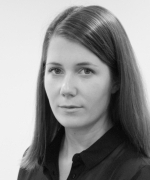About
Sonja Spitzer is a postdoctoral researcher and lecturer at the Department of Demography, University of Vienna, and a visiting researcher at the Okinawa Institute of Science and Technology, Japan. She earned her PhD with specialisation in Demography and Economics from the Vienna University of Economics and Business in 2020. Prior to that, she studied economics in Vienna and Sydney.
Her research aims to understand the causes behind disparities in health and earnings across gender and socioeconomic groups. Using demographic and microeconomic perspectives, she investigates the interactions between human capital, life events, and labour market outcomes across the life course. She has developed specialised expertise in assessing the reliability of survey data, particularly with respect to widely used health and ageing measures.
Currently, Dr. Spitzer leads the Skill-PAL project, which examines human capital loss around childbirth and during parental leave, using administrative data from Austria and Sweden. She also co-authored the project “Life is about timing: Health shocks and socioeconomic inequality across the life cycle” at the Okinawa Institute of Science and Technology, Japan. She serves as an editor for the Vienna Yearbook of Population Research and is a health expert advisor for the Austrian Socio-Economic Panel Survey.
Areas of Expertise
- Health and earnings across the life course
- Demographic economics
- Data reliability
Curriculum Vitae
Contact
Affiliation: University of Vienna E-Mail: sonja.spitzer(at)univie.ac.at
Phone: +43 1 51581 7753
Other Resources
The Wittgenstein Centre aspires to be a world leader in the advancement of demographic methods and their application to the analysis of human capital and population dynamics. In assessing the effects of these forces on long-term human well-being, we combine scientific excellence in a multidisciplinary context with relevance to a global audience. It is a collaboration among the Austrian Academy of Sciences (ÖAW), the International Institute for Applied Systems Analysis (IIASA) and the University of Vienna.

